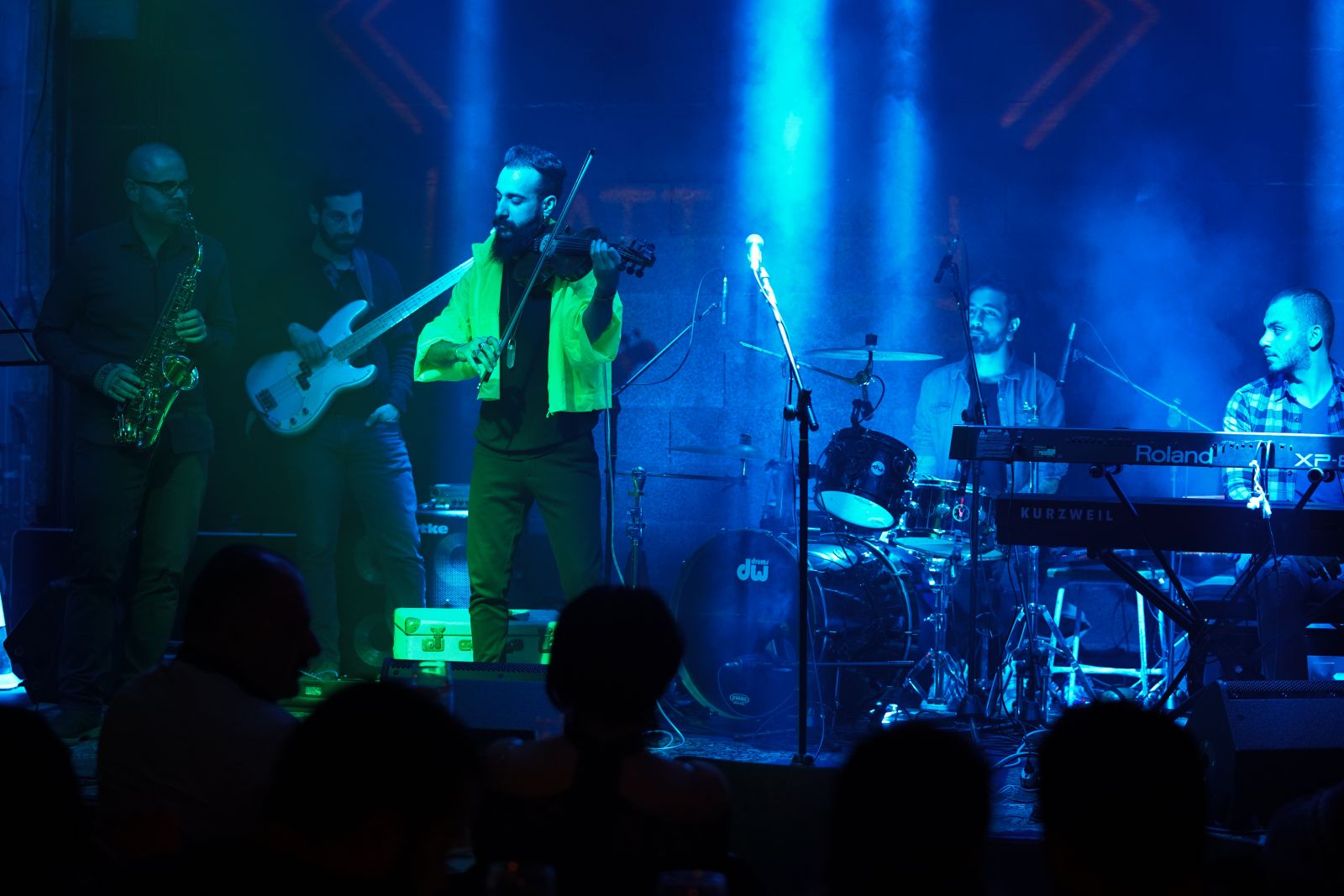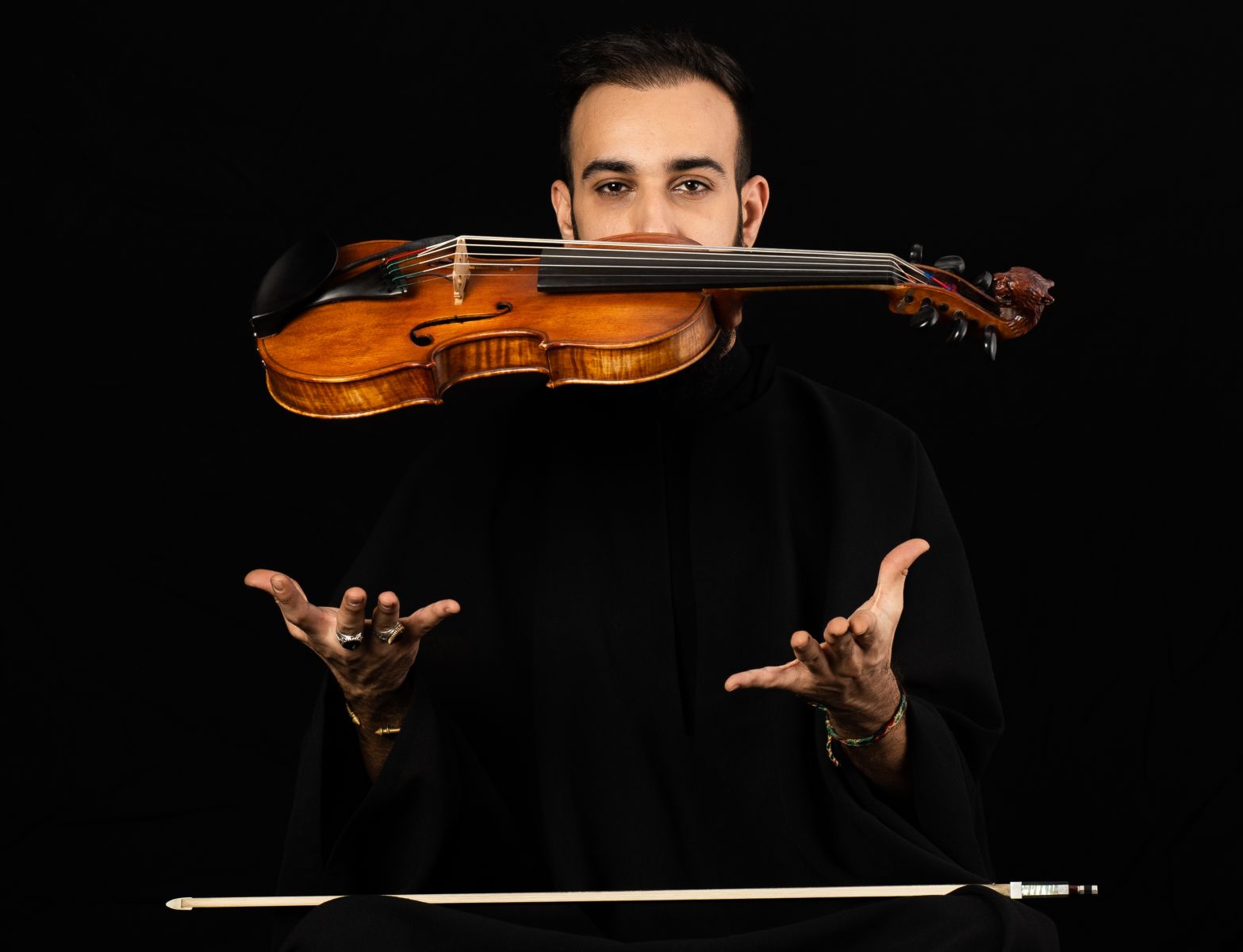Akram Abdulfattah on music: 'I achieve confirmation that we are all human'
Palestinian-American violin master Akram Abdulfattah is bringing his explosive fusion of musical influences to Edinburgh Jazz & Blues Festival. He tells Stewart Smith about the importance of international collaboration

‘I’m not sure how I ended up doing this kind of music, but I really kept things going with my instincts and trying to reflect my personal life experience,’ says Akram Abdulfattah. ‘I always like to learn and explore and connect.’ Since debuting in the mid-2010s, the young Palestinian-American violinist has won acclaim for his virtuosic fusion of Arabic traditions, Indian classical, jazz, rock and electronics. ‘I understood that through multi-national and fusion work, I could achieve some kind of inner peace and a sense of confirmation that we are all human and can share a lot; on stage and off. That made me want to do it more and make it my path, in addition to my belief in the power of instrumental music and its effect on everyone, regardless of their identity.’
Raised in a musical household, Abdulfattah started out playing darbuka (goblet drum) and oud (11-string lute). ‘It goes back to my father’s love and passion for music, especially the oud. Later, that passion was passed on to the whole family. Two of my uncles, Foad and Mowaffak, went on to study music professionally. I remember we had an oud, a classical guitar and a small drum at our house in New Brunswick, before we moved to Galilee; so apparently, music was everywhere!’ After relocating to Galilee, Abdulfattah began studying at a small conservatory near his village, Kaukab Abu al-Hija. ‘That’s where I first fell in love with the darbuka. Then I got introduced to the Arabic violin at the conservatory. Since then, I’ve been navigating its mysteries; and it’s going very well.’

Abdulfattah plays a six-string violin, its wider range allowing him to realise his musical vision. ‘I think my aim was to explore deeper frequencies that I missed from playing the oud. I experimented with the viola, viola d’amore, and a five-string electric violin. Eventually, I was lucky enough to get my hands on a six-string violin, and it aligned perfectly with my vision. It offers the low range of a cello and the high range of a violin. And it’s acoustic, which made my dream come true, thanks to its maker, Eric Aceto.’
The scene in Galilee, Abdulfattah relates, is very diverse. Despite the lack of resources, he remains impressed at the ability of local artists to maintain a high level of artistry and creativity. ‘They’re always finding a way to stay productive in an unnatural conflicted environment,’ he says. While maintaining his Palestinian roots, Abdulfattah has expanded his sound through international collaboration and travel. ‘The first time I got the chance to work with international musicians was through a recording project with the Awan Quartet and amazing Swedish musicians in Ramallah in 2011. That was where I first met Per-Anders Skytt: we still work together to this day.’
The Swedish drummer will be joining Abdulfattah in Edinburgh, alongside Riley Stone-Lonergan on saxophone, Manne Skafvenstedt on keys and Mirko Scarcia on bass guitar. ‘I’m so lucky to share the stage with such amazing talented artists,’ says Abdulfattah. A significant part of the set will be drawn from 2024’s Abu Kenda album, which reflects his experiences as a new father while conflict was erupting around him (‘Abu Kenda’ means the father of Kenda). ‘It’s a cultural thing to call a father by his son or daughter’s name. This album was produced while Kenda was on her way to life and while the aggression was escalating. It had all the mixed feelings of being in a world where you bring life into it, and music to life; on the other hand, a big wave of death and evilness is hitting you.’
Akram Abdulfattah, St Bride’s Centre, 18 July, 9pm.